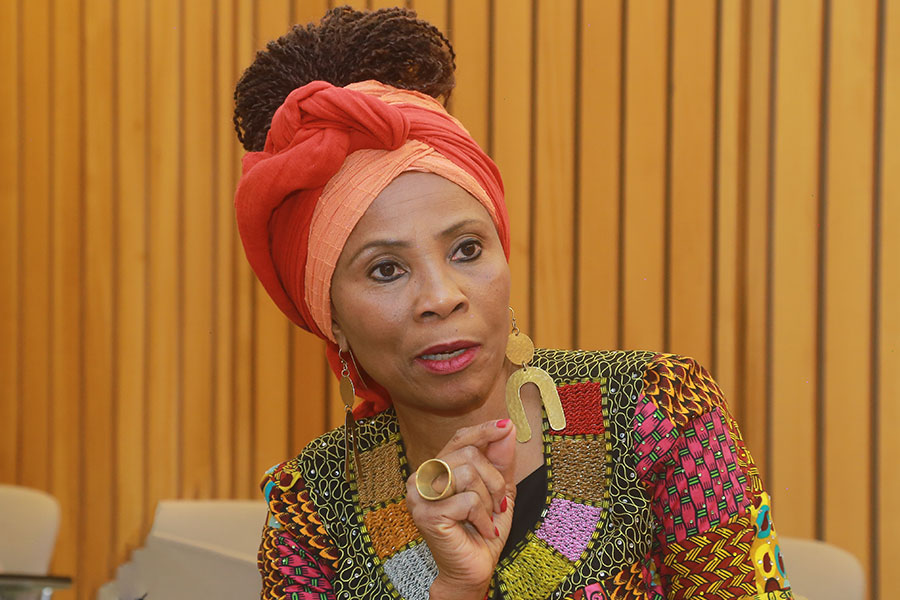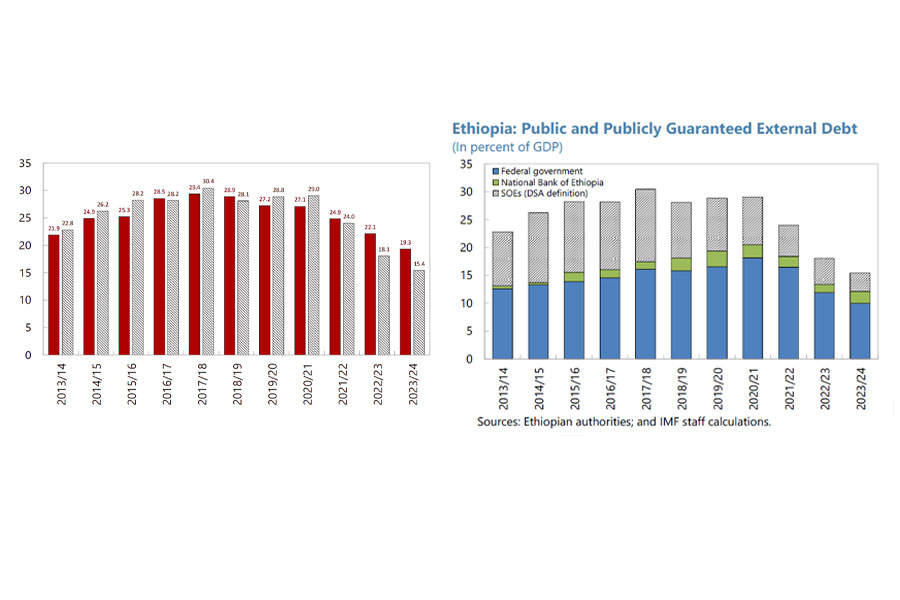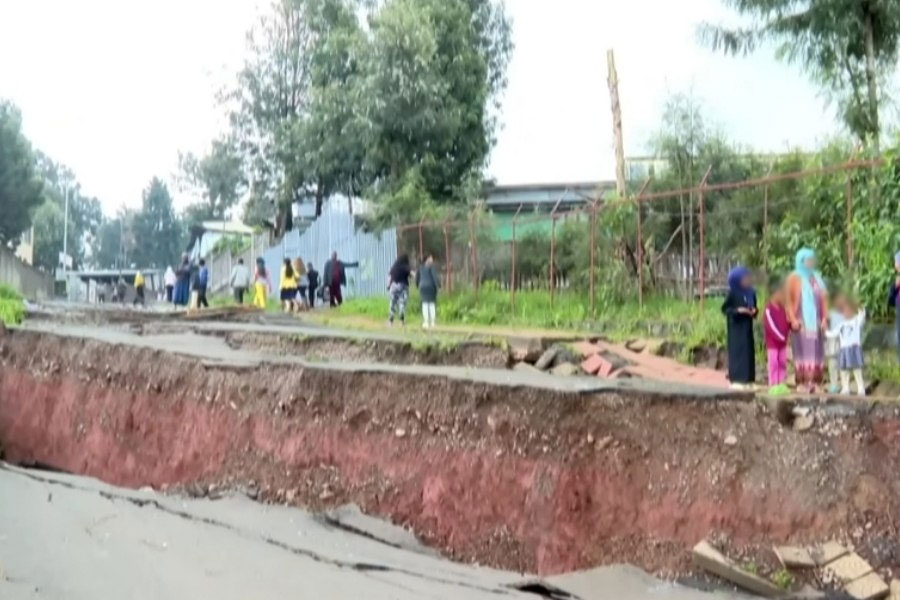
Viewpoints | Feb 11,2023
Sep 20 , 2025
By Maximo Torero
Globally, the average age of farmers has been steadily creeping up, approaching 60 in developed countries. This leaves the sector, which supplies roughly one-quarter of jobs worldwide, in a bind. Unless it attracts large numbers of young workers, it could decline precipitously.
Promisingly, 16pc of the world's population, 1.2 billion people, are aged 15 to 24, and many in this cohort are struggling to find jobs, especially in the developing world. In Africa, people under 25 comprise about 60pc of the population, while around one-third of Africans aged 15 to 35 are unemployed. But young people in the developing world continue to flee rural areas in search of higher-paying, higher-status work in cities and foreign countries. This migration pattern has contributed to a decades-long global decline in the number of young people working in agriculture and living in rural areas.
In Kenya, youth agricultural employment fell dramatically in recent decades, from 58.9pc in 1990 to 28.5pc in 2020. Meanwhile, Europe's rural youth population (ages 15 to 24) shrank by 1.7 million between 2013 and 2019, and only 12pc of the continent's farms are managed by people under 40 in 2025. In Southeast Asia, rural youth comprised only around seven percent of the total population in 2020, down from about 16pc in 1950, while only 11pc of Japan's farmers are under 50. And in Latin America, 1.2 million young people are expected to leave agriculture by 2030.
Is the agriculture sector fated to die out?
Enticing new generations to work in agriculture requires a paradigm shift in how we view the sector. It should be reimagined as a first choice for young people, at the frontier of economic development and offering enticing employment opportunities along the supply chain, rather than a last resort. After all, agriculture is not merely about growing food. It also creates jobs in processing, transportation, retail, and other connected industries.
In addition to its impact on employment, a thriving agriculture sector bolsters overall well-being. In low-income countries, growth in agriculture is two to three times more effective at reducing poverty than growth in other sectors, while higher farm productivity is critical to improving nutrition and food security.
But, the sector suffers from a problem of perception. Young people tend to see farming as dirty, low-tech, poorly paid, and lacking status, the opposite of "modern work." If governments are serious about luring the young to agriculture, they should sell its profitability, breadth, and scale. Presenting a convincing case will require policies that address the valid concerns underlying how young people view the sector. That means reforming land-tenure systems, mandating higher wages, and providing entrepreneurial support.
Too often, though, government policies focus on low-return farming activities that offer little financial stability or career progression. Instead of being encouraged to grow crops or raise animals, young people should be steered toward the rapidly growing category of off-farm jobs fueled by urbanisation, technological advances, and increased demand for locally sourced food. This includes food processing, packaging, storage, and distribution (such as urban farm markets).
For example, to boost the incomes of producers and workers, Kuapa Kokoo, Ghana's leading cooperative of smallholder cocoa farmers, is investing in domestic processing facilities. In the Mekong Delta, Vietnam's rice bowl and one of Asia's most important farming regions, few young people want to work the fields. Rather, they see their future in agricultural services, extension, and research, as well as agribusiness. Agri-tech start-ups are already reshaping supply chains in Vietnam by helping smallholder farmers and cooperatives access financing and export markets.
Developing digital solutions is especially important for ensuring the sustainability and resilience of small producers and expanding the industry. In Croatia, specialised software tailored to short supply chains automates delivery, pickups, and accounting, freeing small farmers to focus on growing food. In Colombia, a low-cost smartphone app helps citrus growers improve crop quality and access markets by linking them to agronomists and merchants.
And in Africa, where processing and logistics already account for 40pc of the farm-to-market chain, platforms that connect farmers to equipment and buyers are flourishing.
Continuing this expansion would provide higher-paying, skills-based employment for young people in rural and urban areas, providing a powerful signal that there is more to agriculture than tilling the soil. But that requires policymakers to provide younger generations with the resources and skills, digital and otherwise, to modernise farming and build sustainable and innovative agribusinesses. It is time to recognise the need to engage young people in agriculture and food systems, both to create decent jobs and, more fundamentally, to feed the world.
PUBLISHED ON
Sep 20,2025 [ VOL
26 , NO
1325]


Viewpoints | Feb 11,2023

Verbatim | May 31,2025

My Opinion | Aug 25,2024

Exclusive Interviews | Mar 04,2023

Sunday with Eden | Aug 01,2020

Radar | Apr 19,2025

Editorial | Feb 06,2021

Commentaries | Jun 19,2021

Sunday with Eden | Jul 03,2021

View From Arada | Dec 25,2021

Photo Gallery | 159748 Views | May 06,2019

Photo Gallery | 150015 Views | Apr 26,2019

Photo Gallery | 138722 Views | Oct 06,2021

My Opinion | 135440 Views | Aug 14,2021

Dec 22 , 2024 . By TIZITA SHEWAFERAW
Charged with transforming colossal state-owned enterprises into modern and competitiv...

Aug 18 , 2024 . By AKSAH ITALO
Although predictable Yonas Zerihun's job in the ride-hailing service is not immune to...

Jul 28 , 2024 . By TIZITA SHEWAFERAW
Unhabitual, perhaps too many, Samuel Gebreyohannes, 38, used to occasionally enjoy a couple of beers at breakfast. However, he recently swit...

Jul 13 , 2024 . By AKSAH ITALO
Investors who rely on tractors, trucks, and field vehicles for commuting, transporting commodities, and f...

Sep 20 , 2025
Getachew Reda's return to the national stage was always going to stir attention. Once...

Sep 13 , 2025
At its launch in Nairobi two years ago, the Africa Climate Summit was billed as the f...

Sep 6 , 2025
The dawn of a new year is more than a simple turning of the calendar. It is a moment...

Aug 30 , 2025
For Germans, Otto von Bismarck is first remembered as the architect of a unified nati...

Sep 21 , 2025
Eyob Tekalegn (PhD) assumed the governorship of the National Bank of Ethiopia (NBE) l...

Sep 21 , 2025 . By NAHOM AYELE
The Ministry of Education is proposing a comprehensive overhaul to address the growin...

Sep 21 , 2025 . By BEZAWIT HULUAGER
Ethiopia has reached a critical juncture after years of aggressive borrowing to fund...

Sep 21 , 2025 . By YITBAREK GETACHEW
A cluster of condominiums and a public school in Addis Abeba have become the epicentr...